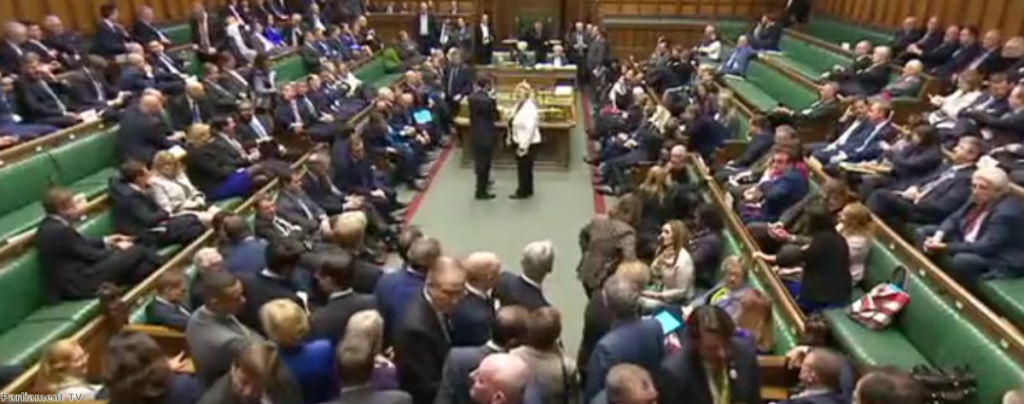By Edward McMillan-Scott
One point came up several times during the debate over Labour's motion on Article 50 this week. MPs want at least as much information on the Brexit process as MEPs.
That becomes doubly the case given that the European Parliament is preparing to vote on the guidelines for the other 27 EU leaders prior to formal negotiations. The 27 will hold a discussion over their Christmas dinner at the forthcoming EU Summit on Thursday and Friday next week, but Theresa May is not invited. Where are we with events in Westminster and Brussels? How easily can we scrutinise what's happening?
In London, the record is mixed. Debates in the House of Commons have been rare, but MPs are preparing reports such as that by the foreign affairs committee on Implications of leaving the EU for the UK's role in the world.


David Davis gave his views on accountability to the House of Lords EU Committee before a November debate on parliamentary scrutiny.
"As you know, my view on parliamentary accountability is very firm. It is a good in its own right and does not need justification by our saying that it will make this or that process better. The simple fact of parliamentary accountability is a good thing. Because of my stance, I want to engage with and consult parliament as widely as possible, consistent with doing the job of delivering the national interest in the negotiation."
In Brussels earlier this month I found the mood over Brexit generally sombre, but one MEP who sees signs for optimism is Guy Verhofstadt. The former Belgian premier and leader of the liberal group of MEPs is the parliament's Brexit coordinator. He is also expected to be a candidate for the presidency of parliament in January. If elected, he would relinquish his formal Brexit role, but he would be likely to exert more influence as president, not just among MEPs but also the other EU institutions and governments.

The Times recently published a profile of Verhoftsadt describing him as "an Anglophile, who addresses the parliament in demotic English and who declares 'I love Britain'; he sees the British decision to leave the EU as a historic chance to save the union: 'I deplore the Brexit outcome but at the same time I say it is what it is. They have spoken. They have taken the decision. Let’s take the positive side, which is to make it a real political union'."
In a book to be published by Basic Books in January, The Times says that Verhofstadt argues that Britain should be offered a form of two-tier or associate membership as an alternative to a sharp or hard break-up with the EU.
However, Verhofstadt is known to resent his failure to become president of the European Commission in 2004 because of Tony Blair’s objection to his fervent Europeanism.
European Parliament committees are also drafting impact assessments on Brexit for a vote on Article 50 coordinated by Verhofstadt.
Michel Barnier, the French European commissioner responsible, recently made a presentation on Brexit procedures to group leaders in the European Parliament. One observer told me that he went out of his way to dispel his ‘anti-British’ reputation. MEPs are promised full access to documents and discussions and, even if the UK government objects, will not be restrained from providing a ‘running commentary’ before MEPs give their consent – or not – to the final Brexit package.
Some point to the risk of MEPs rejecting whatever final consensus may emerge from the 27 governments by the autumn of 2018. Barnier's suggested timetable allows time for debate and ratification by MEPs and national parliaments before the June 2019 European election.
During the Lords debate on parliamentary scrutiny one former MEP, Lord Richard Balfe, warned that by that time half of the MEPs would be retiring and 'demob happy' and the other half would be on social media appealing to their domestic electorates.
In the coming months it will be crucial for us to scrutinise the parliamentary scrutineers, here and across the EU as they grapple with Brexit.
Edward McMillan-Scott was a Yorkshire & Humber MEP 1984-2014 and European parliament vice-president 2004-2014. A former leader of the Conservative MEPs, he opposed David Cameron's split from the mainstream EPP Group in 2009 and sat as a LibDem until 2014. He is a patron of the non-party European Movement.
The opinions in politics.co.uk's Comment and Analysis section are those of the author and are no reflection of the views of the website or its owners.









